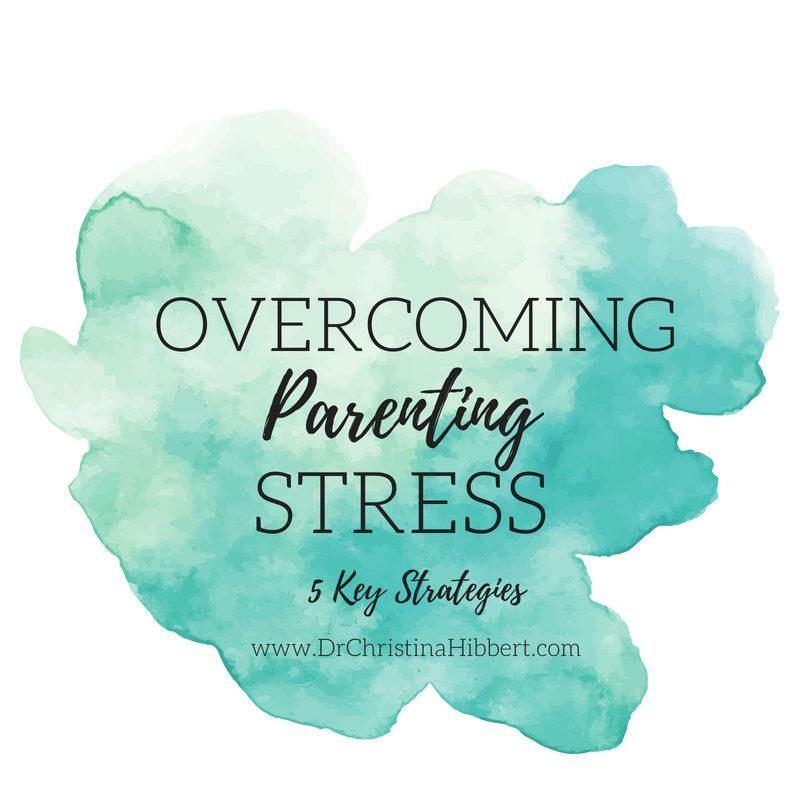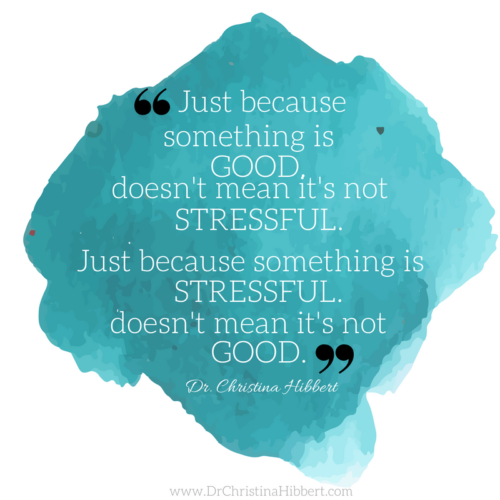
23 Aug 5 Key Strategies for Overcoming Parenting Stress
“Parenting is stressful!” There, I said it, and I believe every parent would agree.
We want the best for our children; we want to be our best for them. But by nature, being “Mom” or “dad” is a high-stress game, complete with late and sleepless nights, too-early mornings, worries, fears, very little downtime, and even littler “me” time.
Even the good stuff about parenting can be stressful–like back-to-school, summer break, sending kids off to Kindergarten or college, or just managing the basics, like activities, schedules, and keeping the house in some kind of order.
I’ve just had a great week, full of “highs”–back-to-school for my three youngest, first day of middle school for my “baby,” my oldest taking his dental entrance exam (and killing it) and applying to dental school, school projects (already!), and last but certainly not least, sending our third oldest back on a 2-year mission for our church to Fiji (with no calls, texts, or contact except once-a-week emails)! Whew! And in the midst of all that, my sister got married in San Diego (and my second son performed the wedding ceremony!), my husband crashed his dirt bike and completely wrecked his right hand (his dental hand!), my daughter got strep throat, and our dog got skunked (again) and ran through the entire house before we could corral her outside and deskunk her (I’m still trying to deoderize the house)! And that’s not to mention my own work responsibilities and projects (like writing a book!) and the “normal” activities and events everyone has each day. It’s A LOT!
But that’s just parenting, as I’ve finally realized. For too long, I kept thinking, “Maybe I’m stressed because of my work,” or “Maybe it’s because I need to cut back my activities and schedule,” but that never quite felt like it was the actual answer.
Then one day, it dawned on me, “Duh! My FAMILY is my biggest stressor! That’s why I feel stressed so much of the time!” At first, I felt guilty admitting that, but I quickly recognized that just because my family creates stress for me (and for my husband) doesn’t mean I don’t love them and doesn’t mean I am not grateful for those stressful things.
Just because something is good doesn’t mean it’s not stressful. And just because something is stressful doesn’t mean it’s not GOOD. Such is the nature of parenting!
Parenting Stress Relief: 5 Key Strategies
The question is, “What do we DO about the stress?”
Of course, each of us has different and unique stressors and each of us has different and unique ways our stress will best be managed, but in my 22 years as a parent and 15 years as a psychologist working with parents, I’ve come up with 5 KEY strategies we ALL need if we want to beat the stress.
1) Identify and Acknowledge the Stressors.
Why do we so often ignore the very things that are stressing us out? Is it because we want to “stay positive?” Or because we just don’t have time to stop and notice? Or perhaps, is it because we don’t want to have to deal with the emotions of the stressors in our lives? For most of us, it’s probably all three, and more.
I’m all for positive thinking and attitudes, but there’s a difference between this and ignoring how we really feel. Just because we acknowledge a stressor doesn’t mean we’re complaining or ungrateful or negative. It simply means we’re recognizing what’s actually happening, and that is the first key to then working through the stress in our lives.
Check in with yourself weekly, if not daily, and:
- Assess your stress level, from 1-10 (10 being highest). Write it down.
- Ask, “What are my current stressors?” Remember, these may be “positive” or “negative.” Be honest and thorough! Write these down.
- Next to each stressor, indicate whether or not there is anything you can or need to do about it with either a (Y or N). The Y’s reflect those things you might be putting off or that need your attention, and the N’s reflect those things you really can’t change or do anything about (like the time school starts and ends) but that still stress you out. The more you identify/know about your stress, the better!
- Identify which stressors are causing the MOST stress for you at that time and star * them. You might rate each stressor, like you did your overall stress level, from 1-10. This way, you know which ones need the most (and soonest) attention.
Again, remember that it’s GOOD to know what your stressors are. It doesn’t make you more stressed to acknowledge them. In fact, it will probably relieve you somewhat to actually understand where all the stress is coming from.
Watch “Parenting Stress Relief,” part of my “3-Minute Therapy series,” for 4 more tips on overcoming parenting stress and finding relief!
2. FEEL the Emotions of Stress.
You can’t HEAL unless you FEEL, and that includes healing from stress. Too often, we ignore the emotions that arise when we’re stressed, emotions like sadness, guilt, fear, worry, anxiety, and more. We don’t want to feel these things, so we pretend they’re not there. Or, we keep ourselves so busy, using our “busy life” as the excuse, when really we are running away from the busy feelings deep inside of us. If we want to overcome stress, especially in parenting, we have to stop and identify and feel the feelings.
- Ask yourself, “What emotions am I experiencing related to these stressors I’ve identified?” Answers may surprise you, so take your time. You might think you’ve just been feeling ‘stressed,’ when really you’ve been feeling sad about saying goodbye to your kindergartner or college student. Anger, fear, worry, anxiety, frustration, sorrow, and heartache are all common emotions when we’re stressed. Identify what you’re feeling, and write it down.
- Then, FEEL the emotions, or as I say, “Freely Experience the Emotions with Love.” This article and video can help you know how to do this. If we don’t stop and really let ourselves FEEL what comes up, it has no way to be released. In feeling, we truly do begin healing, because we allow the emotions to arise, express themselves, and then to dissipate.

Our final hug for the next 2 years, as my son left for his mission to Fiji. I was smiling…until I finally had to walk away, and then…the waterworks. Such is motherhood.
3. Assess what you’re currently doing to prevent/cope with stress in your life.
What are you currently doing to combat the stress in your life? Are you sleeping enough? Eating healthy? Exercising? Are you tuning out with TV? Talking to a friend about it? Going to therapy?
We each deal with stress in different ways, but we also each tend to IGNORE stress in our unique ways. Perhaps, it’s through overeating. Perhaps, it’s through staying overly busy on purpose. Whatever the case, we must first assess and identify what we are and are NOT doing to help reduce stress.
- Ask, “What am I currently doing to reduce the stress in my life?” (i.e. sleep, self-care, alone time, relaxation, time away, play, etc.) Write it down.
- “Is this working for me? Why or why not?” Rate each item on how helpful it is, from 1-10 (1=not helpful; 10=essentially helpful).
- Then, ask, “What am I NOT doing that I know would help reduce my stress?” Write it down.
- Focus on the areas that need attention, remembering to focus on the physical, mental, emotional, social, and spiritual sides of you and your needs as well as your relationships, family, work, home, and financial needs, too.
- What are the top three areas that need the most attention in order to help you reduce stress? (i.e. Better time management, more rest, more time with your partner, alone time, etc.)
4. Prioritize ONE thing and work on it.
Use the “5% better” rule: You just have to try and be 5% better at ONE thing, and that is progress! We don’t want to add to your stress, so be sure to take it slow. Select one area you feel needs the most attention to help you reduce stress and make a goal to work on that this week.
- Ask yourself, “What is the ONE thing that would help reduce my stress the most?”
- Then, ask, “How might I be 5% better at that one thing this week? What might that look like?”
- Visualize what it would look, feel, and BE like to improve in that area, and how that might bring relief from your parenting stress. Then, get to work on it.
- Next week, or when the first goal is doing well, select one new thing to work on, and so on.

The whole fam together for the first–and last–time in a long time, at my sister’s wedding. The good stuff is amazing! AND stressful! 🙂
5. Give yourself a break!
Parenting IS the toughest job on the planet, and all parents know it!
- It’s 24/7, 365!
- The stakes are HIGH (because we love our kids)!
- And really, it’s all about YOUR growth and development as a person (which is huge)!
Remind yourself of these facts, and also of the fact that “You’re doing better than you think.” You are, trust me. And it’s okay, and even beneficial for everyone if you stop and get your stress figured out.
As you allow yourself permission to recognize what’s troubling you, you give your kids permission to do the same. You model self-care and stress management for them and teach them to prioritize these things in their own lives.
You also help yourself feel relief from the stress in your life, and to feel that exhale of “Ah…” wellness. Work on yourself, and you’ll not only overcome stress; you will become the person you desire to be, and, yes, one day, you will even flourish!




